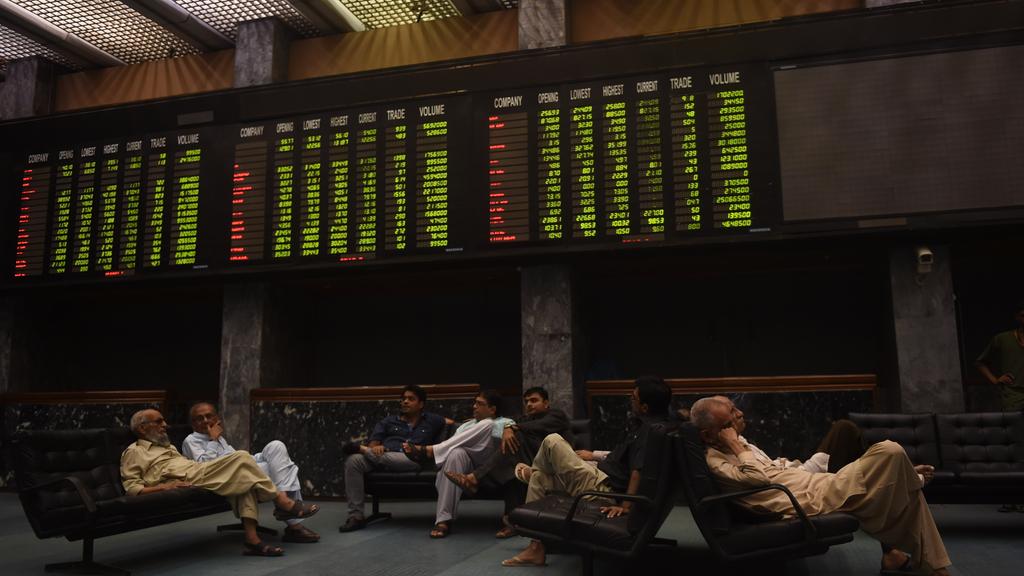
The revenues it seeks from businesses under a corrupt and dysfunctional institutional mechanism and anti-growth policies have caused this capitulation of the private sector.
It has occurred on account of system failure as financing over Rs10 trillion of annual federal and provincial spending is not possible under the failing system. Should this policy continue, the state would be in a dangerous conflict with the country’s economy.
The system failure has been reported by the World Bank in its report “Doing Business 2017, Equal Opportunity for All”. This report indicates that in terms of institutional support to doing business, Pakistan ranks 144th among 190 countries. Government policies and its administrative and monitoring instruments at federal, provincial and municipal levels have prevented market development rather than facilitating it.
These institutions include Inland Revenue, licensing authorities, tax departments and other state organisations that are addicted to costly import procurements, disallowing the local industry to compete and sustain.
The anti-business policies under which these organisations run have never been corrected by the military or civilian governments. Monitoring the conduct of these organisations is found to be lacking in most cases.
GDP growth hits the highest in a decade
Monitoring instruments like Public Accounts Committee of parliament, the Auditor General office, the Public Procurement Regulatory Authority (PPRA) and enforcement wings of different ministries collude rather than seeking remedies.
A visit to any of these offices in Islamabad for assessing the situation gives the impression that these institutions and instruments operate without any enforcement mandate and motivation for transparent conduct.
This is the situation in a country where government spending outpaces market expansion. The modern world agrees that the speed of market expansion is vital for enabling the state to finance its budget.
Over the past couple of years, the state of Pakistan has been forcing the economy to capitulate and show symptoms of disaster.
Government spending ignores all controls when the state becomes the largest single buyer of imported goods, leaving the local industry, especially the engineering goods manufacturers, in want of a market. This trend has been taking its toll on the sector that produced exportable surplus and the consequence is that the country’s exports crashed to the bottom, leaving foreign exchange reserves too scant to support the import bill and service the foreign debt.
In such a default-like situation, the development budget under the Public Sector Development Programme (PSDP) was increased beyond Rs1 trillion with the sole purpose of augmenting the public procurement overseas which helps the bureaucracy to pocket hefty kickbacks.
The impression being given by Finance Minister Ishaq Dar is that the increase in PSDP was meant to accelerate development and create opportunities for investment and employment generation. The media and political circles kept beating this drum until it emerged that investments in the local market were plummeting in the absence of equity support (in the wake of heavy borrowing by the government) and institutional assistance (as bureaucracy is too addicted to imported goods).
Enhancing employment generation is nothing but a dream given the squeeze faced by the local industry.
Only a handful of journalists and public finance analysts were attentive to the fact that the PSDP was increased not for development, investment and employment generation, but for allowing the bureaucracy to pocket higher kickbacks.
The money meant for development landed in corrupt bureaucratic hands and the projects were left fund-starved. The monitoring and facilitation organs of the state became dormant. This is a dangerous situation for the economy and it needs major corrective measures including corrective policies and improved monitoring, enforcement and litigation.
In this context, policy initiatives are unlikely to be taken. Such initiatives need to come from policy boards and finance-related institutions that deal with allocations, facilitation and monitoring.
The policy boards of different departments created for the purpose of taking routine and major corrective measures are virtually dysfunctional and the bureaucracy uses these positions for perks only. But there should be nothing to stop meaningful coordination among institutions for initiating corrective steps that are imperative to protect the local industry.
In this context, functional monitoring would be of great use among the FBR, the Finance Ministry, the PPRA, the Competition Commission of Pakistan, SECP, the National Tariff Commission and the ministries of industries and commerce.
Can Pakistan’s economy afford political instability?
I have seen lower level initiatives made by officials at some of these institutions. These can be pioneering steps towards creating monitoring coordination for reporting the situation in the market and at the organisations that conduct public procurement.
Once such monitoring is operational, major correctives might be possible in the process. But it is vital to keep the Auditor General of Pakistan, the Public Accounts Committee, the Senate Finance Committee and the Privatisation Commission in the loop. Their data would be of great use in such efforts.
The writer has worked with major newspapers and specialises in the analysis of public finance and geo-economics of terrorism
Published in The Express Tribune, October 23rd, 2017.
Like Business on Facebook, follow @TribuneBiz on Twitter to stay informed and join in the conversation.
1719315628-0/BeFunky-collage-(8)1719315628-0-405x300.webp)


1731329418-0/BeFunky-collage-(39)1731329418-0-165x106.webp)













COMMENTS
Comments are moderated and generally will be posted if they are on-topic and not abusive.
For more information, please see our Comments FAQ